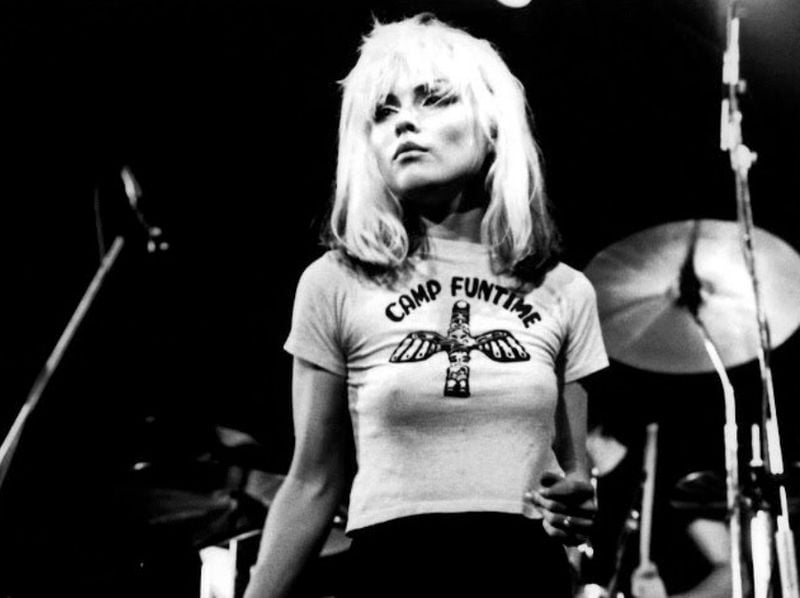While Debbie Harry and Blondie are rightly revered for the impact they had as part of the new wave movement, a shoot-off from punk rock which put some much-needed colour into an otherwise black and white world — their mighty powers extend beyond what first meets the eye.
New York was at the epicentre of culture when Blondie used the city as a vessel to develop their sound, and, despite what the stories of the Big Apple’s uncharitable spirit may suggest, they both needed each other. CBGBs was the place to be at this time. It was home to the Big Apple’s post-punk and new wave scenes, but they weren’t the only types of music forcing the city to vibrate in the late ’70s.
In one corner of the city, the likes of Blondie and Talking Heads were taking to the grimey stage before taking their sound to the international spotlight. Yet, in the South Bronx area of New York, something new was happening as the seeds of hip hop began to get sewn into the city’s DNA. Even though Blondie were, in no ways, embedded into the infantile hip-hop scene — Debbie Harry couldn’t ignore it.
Music is all about being innovative, taking influence from what surrounds you, and for Blondie, this was hip hop. Discussing her hip hop epiphany with The Guardian in 2014, Harry said that Funky Four Plus One’s ‘That’s The Joint’ made her fall head over heels for the genre. The track is a pivotal part in the early chapters of the hip-hop story, and the group amalgamated worlds of jazz, disco and funk together while rapping too. It was nothing short of groundbreaking.
“In the late 70s, when everything started happening with Blondie, hip-hop was a real eye-opener,” Harry explained. “My biggest epiphany came when me and Chris [Stein, of Blondie, her then-boyfriend] went to an event in the South Bronx, and there were DJs scratching and people rapping live. Believe it or not, this was put on by the police department in a gymnasium!
“It was a very local, neighbourhoody kind of thing, and just fantastic. I also remember meeting Nile Rodgers around then, before we made KooKoo [Harry’s 1981 solo album], and how his music with Chic was sampled so much through hip-hop. I always thought there was something very jazz-like in Nile’s playing – those chord changes and the jittery rhythms. I like that idea that hip-hop partly came from jazz blues.”
Rather than just standing back and admiring from afar, Harry brought hip hop into Blondie, and the band became the first-ever act to score a number one single with a rap in the song with ‘Rapture’ in 1981. Back then, rap music was a sub-culture that existed on the periphery of the mainstream, unlike today.
‘Rapture’ is likely to have been the first introduction to hip hop that the average American on the street received. While there had been artists like Grandmaster Flash, Afrika Bambaataa and Kurtis Blow, who had been rapping since the mid-1970s, it wasn’t until The Sugarhill Gang cracked the Hot 100 in 1979 with ‘Rapper’s Delight’ that people began to take notice of the genre.
As New Yorkers, Blondie were au fait with the burgeoning scene and their profile allowed them to give the genre much-deserved publicity by adopting it on ‘Rapture’. It’s fair to say Harry’s ‘rap’ doesn’t quite cut it with the likes of Kendrick Lamar, but that’s because hip hop was in a stage of early evolution during this period and was a different beast to the genre we recognise in 2021.
Harry later noted about ‘Rapture’ (the first song to reach number one with rapping in the verse): “A lot of rappers have told me over the years that that was the first rap song that they ever heard because rap really wasn’t on the radio in the beginning.”
Blondie drummer Chris Stein added to Entertainment Weekly: “The most impressive was the Wu-Tang guys and the guys from Mobb Deep, they told us it was the first rap song they heard when they were kids.”
Although the influence of hip-hop on Blondie sounds bare when you compare ‘Rapture’ with modern efforts, they hopped on board the rap train back when it was radical even to attempt such a move. While Debbie Harry won’t go down as an icon of the genre like RZA or Nas, but she took hip hop to her heart and helped bring it to the masses.
